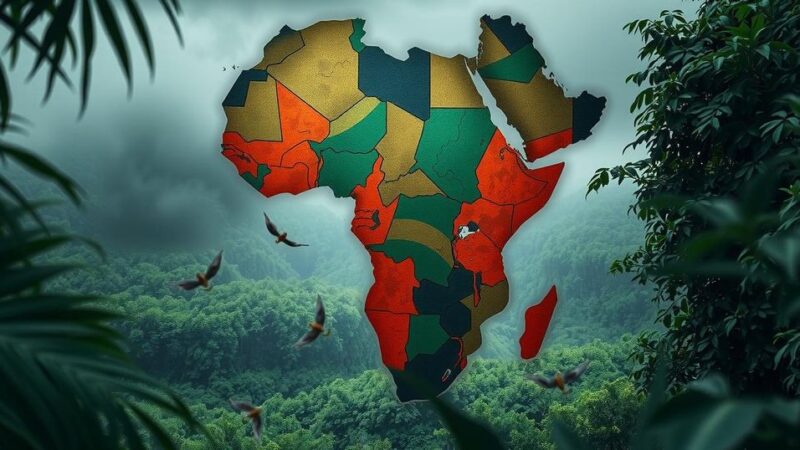Ecuador’s presidential election takes place on Sunday, with Daniel Noboa seeking re-election amid issues like violence and unemployment. Following Guillermo Lasso’s resignation due to impeachment issues, Noboa aims to address the country’s challenges. His rise from political obscurity to office illustrates a changing dynamic in Ecuadorian politics, exponentially impacting the country’s future trajectory.
As the Ecuadorian populace prepares to cast their votes on Sunday, pivotal issues such as violence, unemployment, and the ongoing energy crisis dominate the political landscape. Daniel Noboa, who represents the center-right, is seeking re-election after serving 15 months in his inaugural term. The political climate has been tumultuous, particularly following the resignation of his predecessor Guillermo Lasso, who initiated early elections in 2023 amidst impeachment threats related to embezzlement allegations.
The upcoming election holds substantial significance for Ecuador, a nation of approximately 18 million residents grappling with drug-related violence and soaring unemployment rates, which have compelled many citizens to immigrate to the United States. Mr. Noboa, aged 37, is a graduate of Harvard Kennedy School and hails from one of the country’s affluent families. He ascended rapidly in the political arena, positioning himself as a viable candidate for a nation in distress.
This election emerges as a critical juncture for the future direction of Ecuador. Five years prior, Mr. Noboa was largely unrecognized in the political sphere, but he gained prominence as a member of the legislature in 2021. In the 2023 elections to succeed Mr. Lasso, he unexpectedly surged in the polls following an impactful debate performance, ultimately earning a second-place finish and securing victory against leftist candidate Luisa González in the subsequent round.
Ecuador is currently facing a multitude of challenges that necessitate urgent political intervention, especially concerning violence linked to the drug trade and economic instability manifesting through high unemployment rates. Daniel Noboa’s surprise election victory marks a notable transformation in Ecuador’s political landscape, indicating a shift from previous leadership. The early elections instigated by Guillermo Lasso’s controversial tenure reflect the turbulent nature of Ecuadorian politics and the public’s desire for effective governance amid uncertainty and societal strife.
In conclusion, the upcoming presidential election in Ecuador is a pivotal moment that highlights the nation’s urgent issues, including violence, economic challenges, and energy crises. Daniel Noboa’s re-election bid symbolizes a response to the complex socio-political environment shaped by recent events and public sentiment. Understanding the implications of this election is crucial as it will significantly affect the path forward for Ecuador and its citizens.
Original Source: www.nytimes.com






